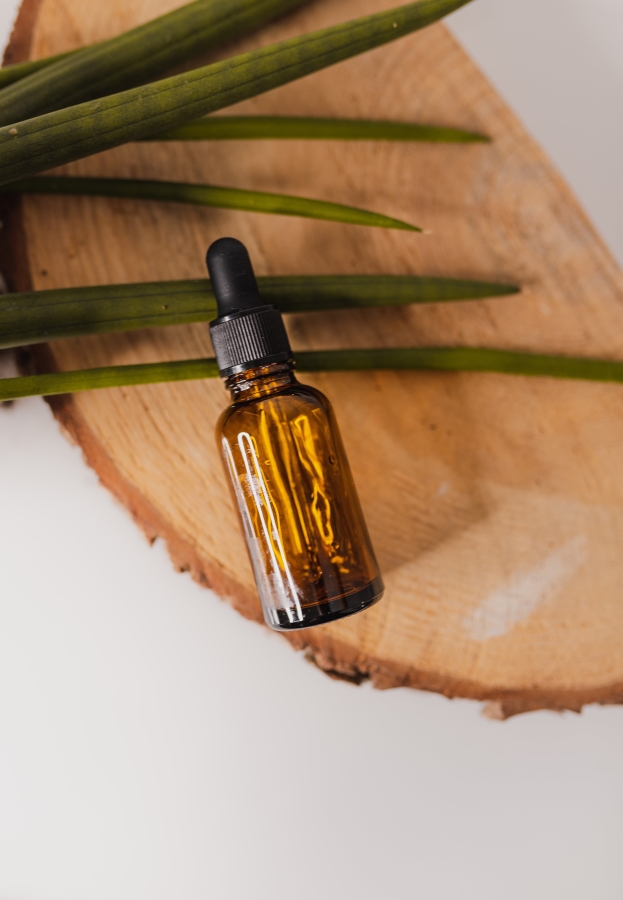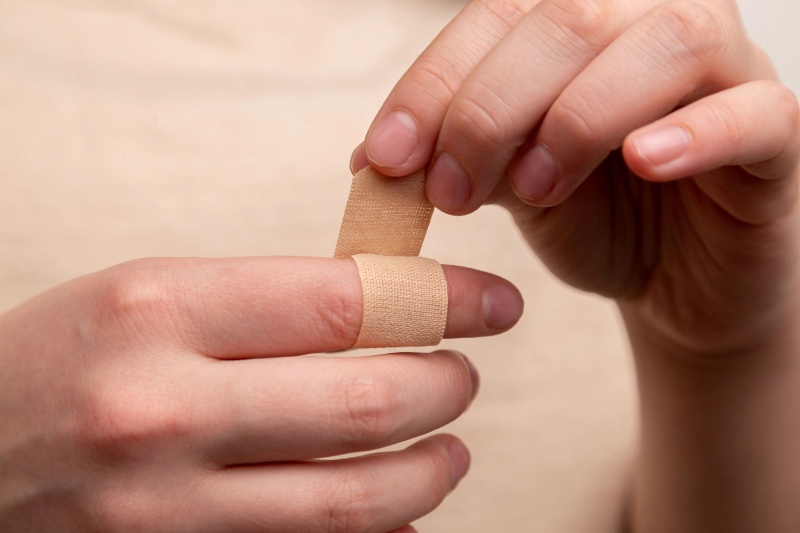Mānuka oil has demonstrated potent antibacterial and antifungal properties, rendering it effective for treating wounds, cuts, and scrapes.
What Is Mānuka Oil?

Mānuka oil is a potent essential oil with a rich history in traditional Maori medicine. It is carefully extracted through a steam distillation process from the leaves and twigs of the mānuka tree, which is native to New Zealand. This oil is known for its distinct aroma and is packed with healing compounds that make it a valuable key ingredient for natural alternatives to modern medicine.
The Science Behind Wound Healing
Wound healing is complex and requires a dynamic process that is supported by a multitude of cellular events. Collagen III plays a pivotal role in promoting wound healing and skin restoration. It collaborates with Collagen I to reduce the appearance of fine lines and wrinkles while enhancing skin hydration levels.
In uninjured adult skin, approximately 80% consists of Collagen I and 10% of Collagen III.
On the other hand, granulation tissue, which forms on the surface of wounds during the healing process, comprises roughly 30% Collagen III and 10% Collagen I. As the healing progresses, Collagen III is gradually replaced by Collagen I, thereby helping increase the strength of the forming scar.
Mānuka Oil’s Antibacterial Properties
One of the key reasons mānuka oil is highly regarded in wound care is its powerful antibacterial properties. It contains a unique compound called triketones, specifically leptospermone and flavesone, which exhibit strong antimicrobial effects. These properties make mānuka oil a potent weapon against harmful bacteria that can hinder the wound-healing process.
The Role of Mānuka Oil in Wound-Healing
Independent scientific tests conducted on East Cape mānuka essential oil have substantiated its potent wound-healing properties. Recent in vitro test results reveal that East Cape mānuka oil induces a significant increase in collagen III production in skin cells.
The impact of East Cape mānuka oil on collagen production in human skin fibroblast cells was carefully evaluated, using a combination of tumour necrosis factor-alpha (TNF-α) and interferon-gamma (IFN-γ) as the reference for collagen production by these skin fibroblasts. This test unequivocally demonstrated that mānuka oil exerts a robust stimulatory effect on collagen III production, reaffirming its wound healing and anti-aging properties.
Different ECM (Extracurricular Matrix) Compositions in Healthy Skin During Wound Healing

(Top) This diagram illustrates the various locations of different extracellular matrix (ECM) components within skin tissue. (Bottom) It provides schematic representations of the primary ECM molecules found in the interstitial matrix (A) and the basal lamina (B) in healthy skin. It also depicts the fibrin clot (C) and the granulation tissue (D) formation during the process of skin wound healing. The stars indicate ECM molecules that have been observed to strongly bind to various growth factors.
The tests conclusively demonstrated that mānuka oil from the East Cape region exhibited a strong and evident stimulatory effect on collagen III production. This finding reaffirms mānuka oil’s potential applications in wound healing therapeutics and anti-aging treatments.
Benefits of Using Mānuka Oil for Wounds

Healing Properties
Mānuka oil is renowned for its ability to accelerate the wound-healing process. It promotes tissue regeneration, which can help wounds close faster and reduce the risk of scarring. This makes it an excellent choice for various types of wounds, including cuts, abrasions, and burns.
Antiseptic and Anti-inflammatory Properties
Apart from its antibacterial properties, mānuka oil also possesses antiseptic and anti-inflammatory properties. Applying it to wounds can soothe irritation, reduce redness, and alleviate discomfort. This dual-action approach supports the overall healing process.
Reduces the Risk of Infection
Infections are a common concern with open wounds. Mānuka oil’s antimicrobial properties are crucial in reducing the risk of infections. It eliminates harmful microorganisms at bay, ensuring a cleaner, healing environment.
Other Mānuka Oil Health Benefits
Manuka oil can be used for a wide range of applications:
- Analgesic: Offers effective pain relief.
- Anthelmintic: Eliminates parasitic worms or helminths from the body.
- Antibacterial/Bactericidal: Destroys and prevents the growth of bacteria.
- Antidandruff: Averts the occurrence of dandruff, a common scalp issue.
- Antihistamine: Hinders allergic reactions and inflammatory responses.
- Anti-inflammatory: Reduces inflammation and diminishes swelling.
- Antifungal: Eliminates and prevents the growth of fungi.
- Antiseptic: Hinders the spread of infections.
- Cicatrisant: Encourages skin healing, particularly for scars.
- Cytophylactic: Preserves the well-being of skin cells.
- Deodorant: Prevents unpleasant body odours.
- Expectorant: Promotes the production of mucus and sputum in the airways, aiding in clearing blockages, especially in cases of a congested throat.
- Immune Stimulant: Enhances the immune system’s ability to respond to infections and diseases.
- Insecticidal: Eradicates insects such as mosquitoes, sandflies, and spiders.
- Relaxant: Induces relaxation and reduces stress.
- Spasmolytic: Eases muscle spasms.
Where to Buy High-Quality Mānuka Oil
Look for consumer products with MβTK™–a quality mark designed to provide transparency regarding the percentage of β-triketones in mānuka oil products, offering both quality assurance and source verification.

